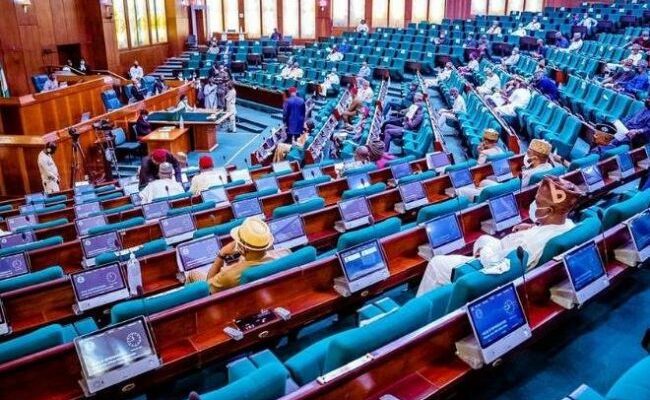The Speaker of the House of Representatives, Hon. Tajudden Abbas, along with other stakeholders, expressed serious concern over a report by the International Crisis Group.
The report revealed that over 1,800 deaths and the displacement of 2.5 million people have occurred due to clashes between herders and farmers.
Speaking at the premiere of the stakeholders’ forum on addressing the impact of climate change on farmer-herder clashes in Nigeria, organized by the office of the Deputy Chairman, House Committee on Environment on Wednesday, Speaker Abbas emphasized that climate change is a significant factor exacerbating these conflicts.

In his address, Hon. Abbas stressed the importance of moving away from outdated herding and farming methods by adopting global trends in agriculture, particularly in the context of climate change.
He also lamented the limitations imposed by the Land Use Act, which restricts the extent to which the Federal Government and the National Assembly can make necessary changes to address the situation.
ALSO READ: Edo guber: Ighodalo needs no clandestine means to win, PDP replies APC
Represented by Hon. Dickson Takighir, the Speaker stated, “Climate change is a topic of global concern due to its many effects on life on earth. Farmer-herder clashes have similarly troubled our country, with one issue compounding the challenges of the other.

As someone from one of the hotspots, Kaduna, I am not new to this subject. In many parts of the country, farming communities have been deserted, leading to severe repercussions on food security.
“Climate change has intensified the farmer-herder conflicts.
Both farmers and herders are now competing for fewer resources, with distorted rainfall patterns caused by climate change leading to desertification.
In search of greener pastures, herders have continued to migrate into farming communities.”
Acknowledging that numerous efforts by the Federal and State governments have yielded limited success, Hon. Abbas praised President Bola Ahmed Tinubu’s initiative to create a Federal Ministry on Livestock, aimed at providing a coordinated federal approach to animal husbandry.
He urged, “What do we do, and where do we go from here? Firstly, we must be ready to abandon outdated herding and farming methods.
Countries that excel in the cattle business also perform well in various farm crops. These nations offer us templates on how to succeed in these industries without the crises we routinely face here.
“Statistics suggest that ranching is the way forward. The successes and profits seen in countries that ranch cattle make our continued reliance on nomadic husbandry questionable.
However, transitioning from nomadic herding to ranching poses challenges, including cultural attachment, ignorance, lack of capital, political will, and national legislation. We need to chart a nationally acceptable direction toward international best practices in the cattle industry.”
In his remarks, Deputy Chairman of the Committee on Environment, Hon. Terseer Ugbor, voiced deep concern over the impacts of climate change in the region.
He stated, “In the heart of West Africa, climate change is driving a relentless transformation. Across the Sahel region, the once verdant pastures that sustained nomadic herders are succumbing to desertification, fueled by rising temperatures and erratic rainfall.
This ecological upheaval has forced herders to migrate southward in search of sustenance for their livestock.
“The ripple effects of this displacement have been felt acutely in North Central Nigeria, particularly in the Benue Valley, igniting a cycle of violence with farmers bearing the brunt of the conflict.
This has led to thousands of deaths and displacements.”
Hon. Ugbor cited the International Crisis Group, noting that between 2013 and 2022, over 1,800 people were killed, and 2.5 million were displaced due to farmer-herder clashes in Nigeria.
He proposed solutions including affordable green housing for displaced persons, restoration of degraded farming and grazing lands, training and capacity building, resource and water management, renewable energy integration, and peacebuilding through dialogue and mediation.
He called on stakeholders to “support and contribute to this climate mitigation and adaptation initiative for the stability of Nigeria and the peaceful coexistence of our peoples.”
Minister of State for Environment, Dr. Ishaq Salako, emphasized that synergy between the Legislature and the Executive is fundamental to addressing the challenge, advocating for a multifaceted and collaborative approach to the solution.
Minister of Water Resources and Sanitation, Joseph Utsev, represented by Director Engineer Ngozi Agbowo, affirmed the far-reaching effects of climate change and called for more proactive measures to address the situation.







